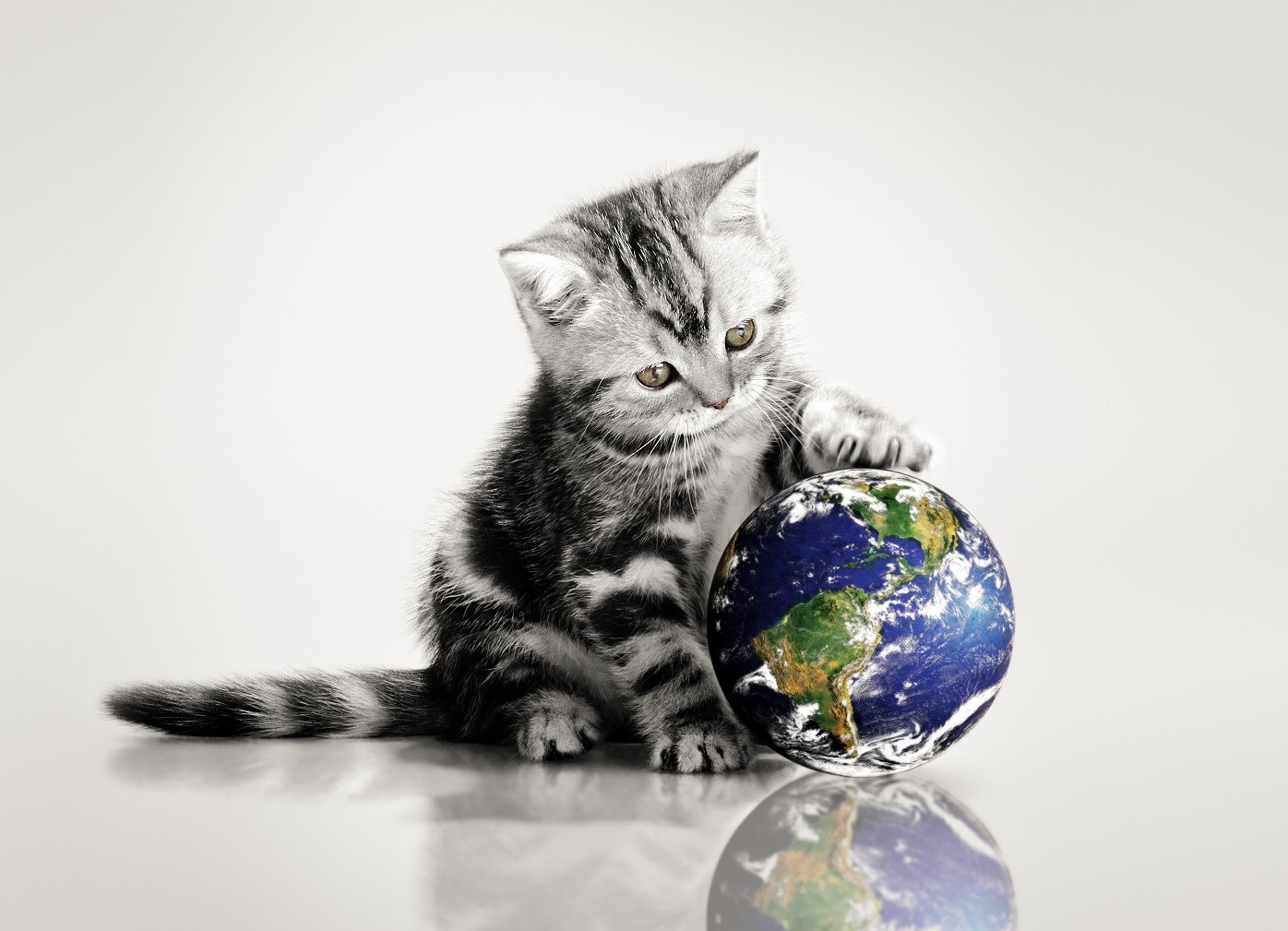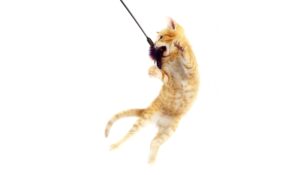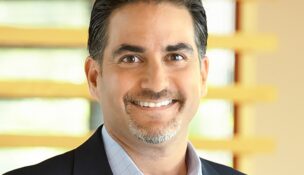Pet Brands Examine Sustainability, Reduce Environmental Impact
Glenn Polyn //April 1, 2023//
Every action we take affects the health of our planet. From the products that humans use to the products made for our pets, production processes and consumption methods are impacting the planet, and not in a favorable way.
As awareness of the harm spreads, pet parents are seeking brands that align with their views.
Pet brands and manufacturers are making changes to the ways in which their products are made, especially those involved in multiple steps of the process. Ingredients in pet food and treats, materials used for toys and even their packaging can be eco-friendly without compromising the quality or the functionality of a product. Retailers should be seeking out these types of products, learning the history of a company and educating their customers.
Brands are moving toward more sustainable practices, and there are a variety of certifications and organizations that are devoted to the mission. Having insight into implementing eco-conscious business practices – as well as the benefits – is extremely relevant in today’s climate to brands, manufacturers and retailers.
Sustainability initiatives that promote a planet-friendly approach to sourcing, production, packaging and shipping are an increasingly important tool among pet product manufacturers.
Organizations Emerge to Help
When it comes to eco-friendly packaging, the pet brands that have a sustainability mission tend to focus on recyclability, renewable sources and compostability, which exploits the biodegradability of the initial organic materials to transform them into compost. According to a Pet Sustainability Coalition (PSC) report, over 99 percent of dry dog food bags are disposed of in a landfill rather than recycled.
The non-profit organization, which is led by a veteran team of industry experts, was created to help companies achieve sustainability without compromising. The nonprofit embraces the vision of a pet industry that creates positive impact for communities and environments with a mission of advancing through profitable environmental and social practices.
PSC relies on the strategic direction of its advisory board members who meet on a bi-monthly basis to hear member feedback, provide guidance, set performance metrics and ensure the organization maintains credible progress toward its mission. It also holds its members and own team accountable to certain sustainable standards and promotes continual improvements to be made as the industry evolves.
Most recently, the PSC targeted the importance of using environmentally friendly materials and launched a Package Pledge, which it describes as “a pathway toward sustainable packaging by 2025.” Pet companies can sign-on to the pledge, a program to support pet companies to move to 100 percent recyclable, reusable or compostable packaging by 2025.
For pet food manufacturer, Mid America Pet Food, the commitment to sustainability is at its core and has continued to work “to do things the right way and as we’ve grown, we’ve continued building on that foundation,” explained CEO Greg Cyr.
Two years ago, Mid America Pet Food (MAPF) acquired Nature’s Logic, a brand with a deep commitment and strong background in sustainability. The merger led to a new executive team role that focuses on continuing and improving the company’s sustainability goals.
MAPF is not only recognized as an Accredited Business by the PSC, but its senior vice president of corporate social responsibility, David Yaskulka, is on the current board for the organization. Yaskulka is well known among his colleagues as being a sustainability leader in the pet industry.
“This is a wonderful first step in our journey to elevate our corporate social responsibility,” said Yaskulka. “MAPF is helping lead the way in safeguarding the health and well-being of pets, and for the people who work hard every day to make their food. We are also thankful to the Pet Sustainability Coalition for this recognition, and for the tools that help us improve every day.”
McKernan Packaging Clearing House has been operating for nearly 64 years, long before eco-friendly became a buzzword, says Elaine King, sales manager. “Today we are so excited that technology has come a long way, and we can now proudly offer PCR which has the quality and appearance of virgin resin packaging,” she added. “We are very proud of our beginnings and how many billions of packaging we saved from a landfill.”
The company offers two programs that are eco-conscious. The first is a line of PCR (Post Consumer “recycled” Resin) packaging that includes PET & HDPE PCR bottles and jars, closures, foam pumps, fine mist sprayers and dispensing closures. The second is its PRECYCLE program, which the company coined in the 1960s and is pre-consumer recycling.
“We buy unused and unbranded excess packaging and floor it for immediate sale at a very reduced price. This Earth-friendly concept gives packaging more use before being recycled or tossed into a landfill,” explained King.
The company’s PCR meets standards set by the Global Recycled Standard and is also accredited by SLAB, which recognizes the need for promotion of accreditation in greenhouse gas validation and verification-related schemes.
Karlyn Kubin, marketing and branding specialist for ZIWI, notes that it’s important to remember that “eco-friendly does not just mean the packaging. It is deeply embedded into manufacturing processes, and above all-else, the sourcing of ingredients.”
ZIWI uses ingredients that are ethically and sustainably sourced from free-range farms, using grass-fed and grass-finished methods and with its own kitchen, Awatoto. Opened last August, Awatoto features recycled and reclaimed wood furnishing, water collection systems to water and regrow nearby vegetation and replanted native foliage to encourage repopulation of endangered birdlife, bees and insects.
“The company ensures maximum nutrition due to minimal processing and holistic feeding practices alongside sustainable farming,” explained Kubin. “[This means] our animals are fairly treated and that we leave the smallest footprint possible — ecologically.”
Advice
Navigating the ins and outs of the specificities that come with being sustainable shouldn’t have to be a daunting process for a company. Melissa Rappaport Schifman, co-founder of Project Hive, points out three areas that companies should focus on to assess its impact on the planet: energy, water and waste.
“With climate change, [however] I would start with a carbon footprint analysis and make a plan to reduce emissions,” Schifman added. “Another great place to start is B Lab’s free self-assessment tool — SDG Action Manager — a valuable process even if you do not plan to certify as a B Corp.”
Having been in sustainability for the past 15 years, Melissa and her husband, pet industry veteran Jim Schifman, witnessed destruction to the planet (pollution of air, waters and soils), and launched Project Hive in 2021 to help save the bees. After being organized as a public benefit company, Project Hive set out to become a Certified B Corp and in December 2022 it achieved that goal.
Made in the U.S.A., these products use less energy for freight and these treats are vegetarian (compared to animal-based) and Non-GMO Project Verified. “Our toys and toy packaging are also 100 recyclable,” she explained.
With a vast number of resources available at the tips of our fingertips, Kate McCarron, founder of Portland Pet Food Company (PPFC) suggests “spending time doing your homework and researching sustainable practices.”
“With so many households owning a pet, we have a responsibility to provide Earth-friendly options to our customers that are also nutritious and fresh,” McCarron added. “Additionally, I would advise joining a local or national initiative such as the Pet Sustainability Coalition.”
McCarron explains that PPFC uses practices to follow with the environment in mind and uphold the company’s ideals: Repurposing ingredients such as spent grains (barley) from local breweries and imperfect produce – reducing the waste of high-quality ingredients; Utilizing BPA-free meal packaging that is lighter to transport than cans, thus reducing the carbon emissions in transport; Using human-grade, fresh ingredients that are highly digestible for pets, resulting in less frequent poops, thus fewer poop bags being used and less environmental contamination.
Already part of the PSC, PPFC is also part of the Upcycled Food Association, which prevents food waste by coordinating hundreds of companies around the world and empowers millions of consumers to prevent climate change with the products they buy.
McCarron calls out the importance of working together as “none of these resources were available when we started PPC.” The company is also working to become a Certified B Corporation where it must meet high standards of verified performance, accountability and transparency on factors from employee benefits and charitable giving to supply chain practices and input materials.
Sustainability managers are emerging within brands and companies are being formed around achieving a goal of helping the Earth to help in the process as the demand for eco-conscious options continues to increase from pet parents; In June 2021, three firms, Chicago-based Emergent – The Healthy Living Agency, London-based Brand Experience Group (BXG) and Seattle-based Informed Sustainability Consulting announced a new turnkey services for pet brands and retailers that answer the growing influence of climate change and sustainability impacts on their business prospects.
These types of teams can be formed within major companies but also within retailers. Spending dedicated time to sustainability research and efforts can lead to positive business results and ethical results, if sustainability is important to a store.
Benefits
Knowing the benefits in any decision is key but, according to Kubin of ZIWI, that is especially the case in business.
“Sustainable and eco-friendly consumables will continue to be a growing focus for pet specialty retailers,” she said. “As the competition for Earth’s resources continues to rise, the demand for sustainable products will become commonplace and retailers without these products could face future customer retention challenges.”
A MarketWatch report findings show how cats and dogs are responsible for 25 percent to 35 percent of the environmental impact of meat consumption in the U.S., which equates to 64 million tons of carbon dioxide a year. The impact is hard to ignore, and consumers are responding.
As of last month, Shameless Pet Foods saved over 1 million pounds of food through upcycling, with a goal of reaching 5 million pounds of food by 2025. Like Portland Pet Food Company, Shameless Pet Foods is a member of the PSC and the Upcycled Food Association.
“Each of our treat recipes includes at least 25 percent upcycled ingredients, and often includes a much higher percentage,” explained Allison Sparks, head of marketing for Shameless Pet Foods.
As demand is growing for pet products in general as well as sustainable options, eco-friendly practices within the pet industry have the potential for real impact on the planet,” she added.
Retail owners should be connecting with pet food manufacturers to learn how their missions align between the clientele thus gaining a new vendor and customer base all while providing ethical products to the marketplace. Naturally Fresh is an eco-friendly company that participated in upcycling food by-product and transforming it into cat litter.
“Through our production process, we generate nearly 42 percent fewer fossil fuels and 97 percent fewer mineral resources than clay litter,” said Helen Cantrell, director of sales and marketing for Naturally Fresh. “Because we use solar panels in our production facilities, we emit 130 percent fewer greenhouse gasses than clay production.”
Cantrell echoes Sparks’ thoughts and says there is an opportunity for pet companies to “actively make a difference to provide healthier and safer options.”
According to PPFC’s McCarron, the most effective way to make a change is to do it together, while also noting two business benefits.
“We are working to maintain and offer a healthy product for pets and their owners,” she said. “It [also] achieves the goal of reducing waste in sourcing imperfect or upcycled ingredients. It is an investment in today and the future that you cannot put a price on, but the benefits go far beyond the lifecycle of my business.”
The themes run deep and true to their origins within the sustainability category in any industry. There are accreditations and certifications for pet companies in order to unite a group of people who want to leave a mark on this world in a positive way.
Organizations exist to guide those who are new to the journey and resources are available not for just pet food and treat companies but also toys, litter, accessories, grooming products and — retailers. Having the knowledge to offer customers products they need based on their eco-conscious decisions can bring in a set of consumers specifically seeking what you have, but also make a difference.
Common sense says that getting into the path of sustainability should be the norm; however, until it is, be patient with the process. As with everything else of this magnitude, it will take time. Those members of the pet care industry who are passionate about providing options that will benefit the Earth should identify ways in which their actions have a positive effect on the environment.
“Whatever the product or service, businesses that work towards becoming more environmentally sustainable can benefit financially,” noted Melissa Rappaport Schifman in her March 2023 Management column, “Think Sustainability.” “For pet retailers, carrying products from brands that practice sustainability is a win-win. Consumers embrace these products, so you’ll sell more products while supporting the cause. In the pet industry, we hope to drive this change so that we all benefit from a more sustainable society.”



















